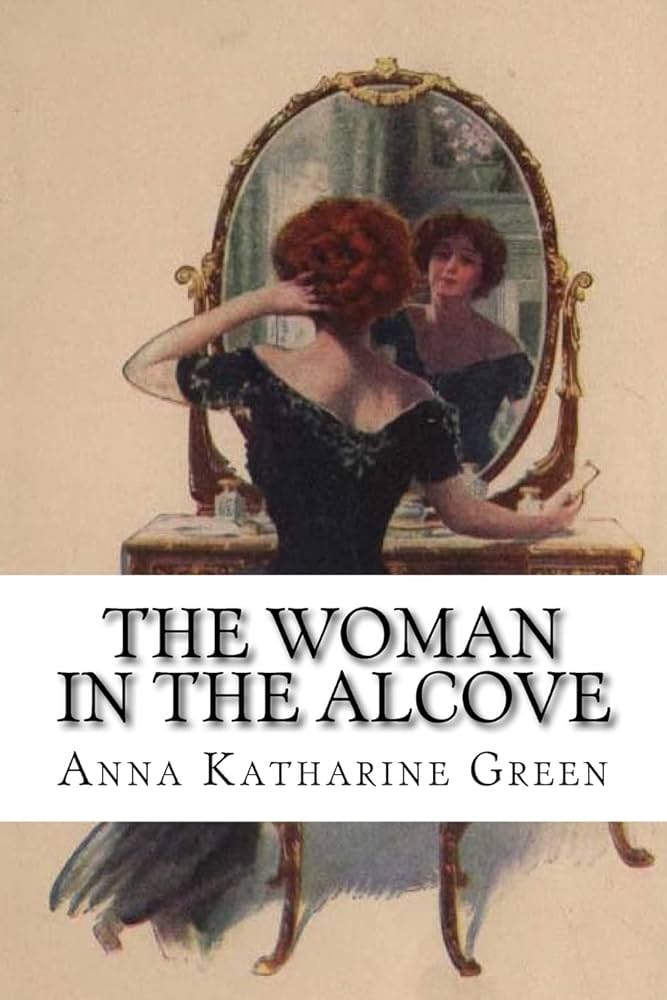Chapter XXII — The woman in the Alcove
byChapter XXII — The woman in the Alcove draws back the final veil on the story’s darkest truth, revealing the tangled depths of guilt, passion, and retribution. In the midst of tense confrontation, Mr. Grey forces a reckoning as he presents a stiletto to the accused—a gesture that cuts deeper than any blade. Fairbrother, stunned into silence, is cornered not just by accusation, but by the memory of what he has done. The name “Grizel,” uttered from his own lips in a moment of emotional fracture, seals his undoing. Grey’s careful orchestration leads Fairbrother to relive the night of the murder, step by devastating step. In this moment, it is not justice that speaks, but truth, summoned through guilt too heavy to bear in silence.
As the scene unfolds, Fairbrother’s mask of composure cracks beneath the weight of his own past. His confession does not come easily—it is extracted with each recollection, especially when the sound of shattering china resurrects the moment of the crime with cruel clarity. Rage, not greed, fueled his hand that night. It was not the Great Mogul diamond that tipped him toward murder, but the fiery defiance in his wife’s eyes. Disguised as a waiter and hidden behind pleasantries, he crept through the crowd unnoticed, carrying death beneath his tray. That calculated maneuver, once a mark of his cunning, now stands as evidence of a man unhinged by betrayal. His explanation carries no excuses—only the weight of remorse and the weariness of a man long at war with his own conscience.
The chapter reaches its chilling peak when Fairbrother surrenders the jewel, no longer a prize but a symbol of all that has been lost. His crimes, once buried under layers of deception, now lie bare and undeniable. There is no redemption left for him, only the solemn relief of unburdening his soul. As he recounts the murder, his voice is stripped of its former arrogance. What remains is a man hollowed out by grief and consequence, one who can no longer outrun the memory that stalks him in every reflective silence. His surrender is both physical and emotional—offering up the diamond and, with it, the last shreds of his self-made illusion.
The significance of Fairbrother’s deception—his carefully planned infiltration and untraceable movements—highlights not only his ingenuity, but his obsession. He went to extraordinary lengths to reclaim control, to punish what he perceived as betrayal. Yet the cost of vengeance was far greater than he imagined. Love twisted into anger, pain channeled into violence, left him with a legacy not of satisfaction, but of ruin. That his downfall was of his own design adds a tragic irony to his confession. He was not destroyed by another man’s plot, but by his own inability to forgive and to let go. Grey, watching his adversary unravel, sees not a villain, but a man undone by his own heart.
This chapter binds the narrative together with threads of motive, action, and consequence. Fairbrother’s unraveling brings closure, not through justice served in a courtroom, but through a deeply personal reckoning. His guilt, drawn out in the presence of the very man he once tried to deceive, becomes the final act of the story’s emotional arc. There is no grand punishment to follow—only the stillness that comes after a storm. In this silence, Grey does not gloat. He mourns, not just the life lost in the alcove, but the wasted brilliance of a man who could have been more. The confession, though damning, allows one final truth to emerge: that even the cleverest mind cannot outrun the weight of the heart.


